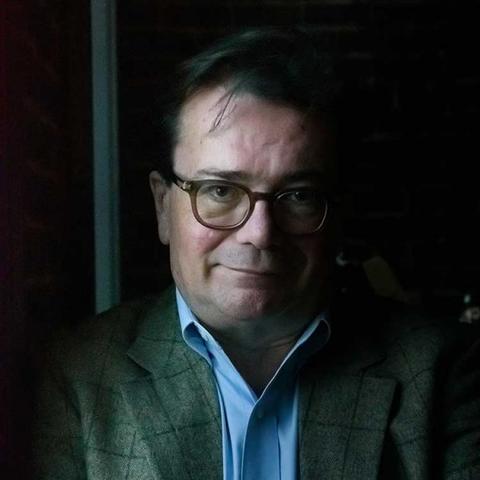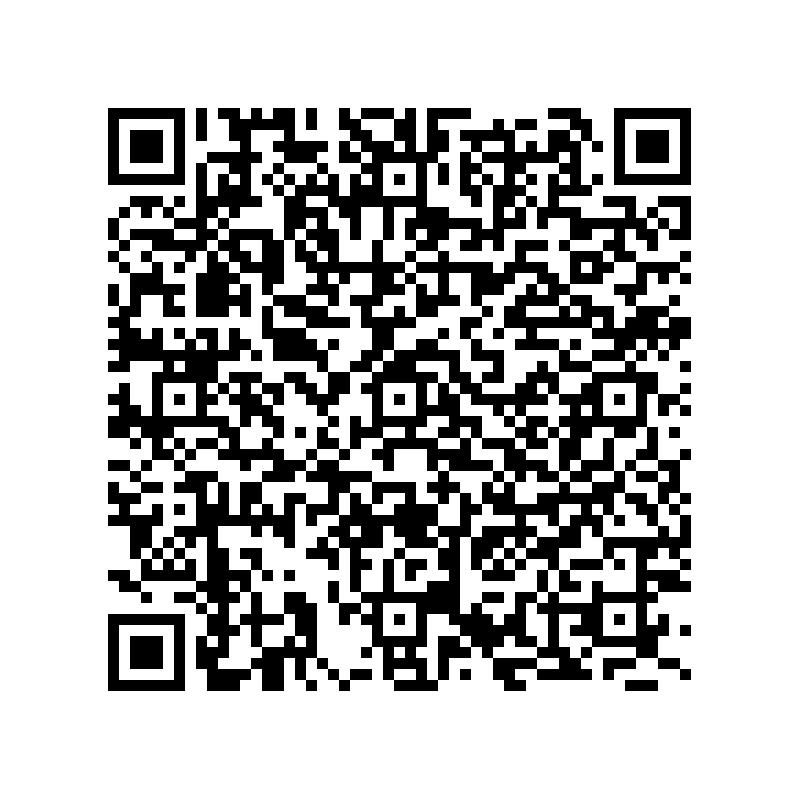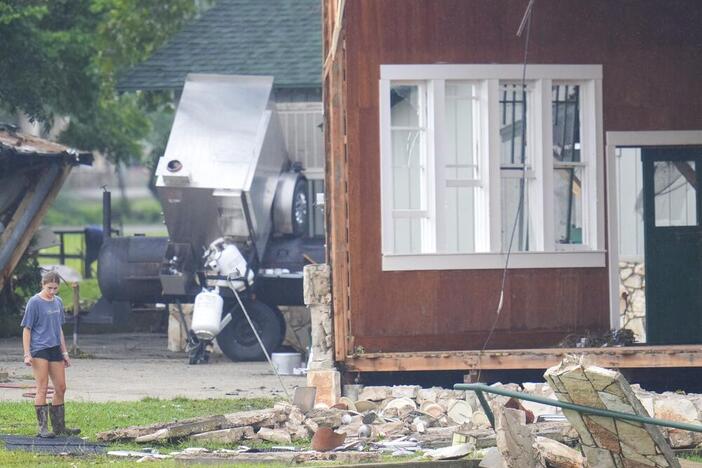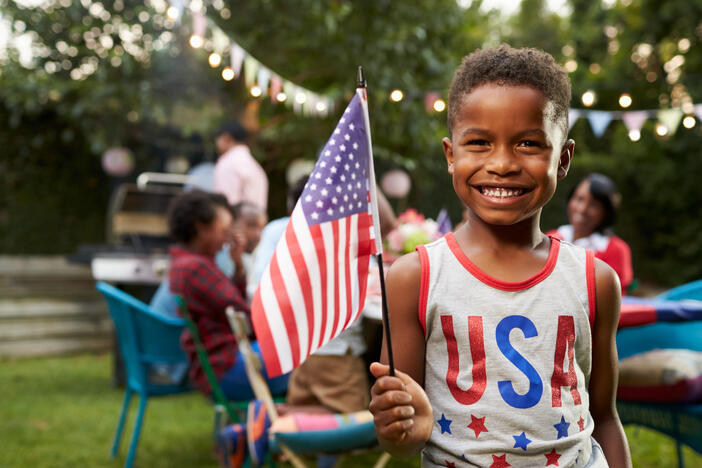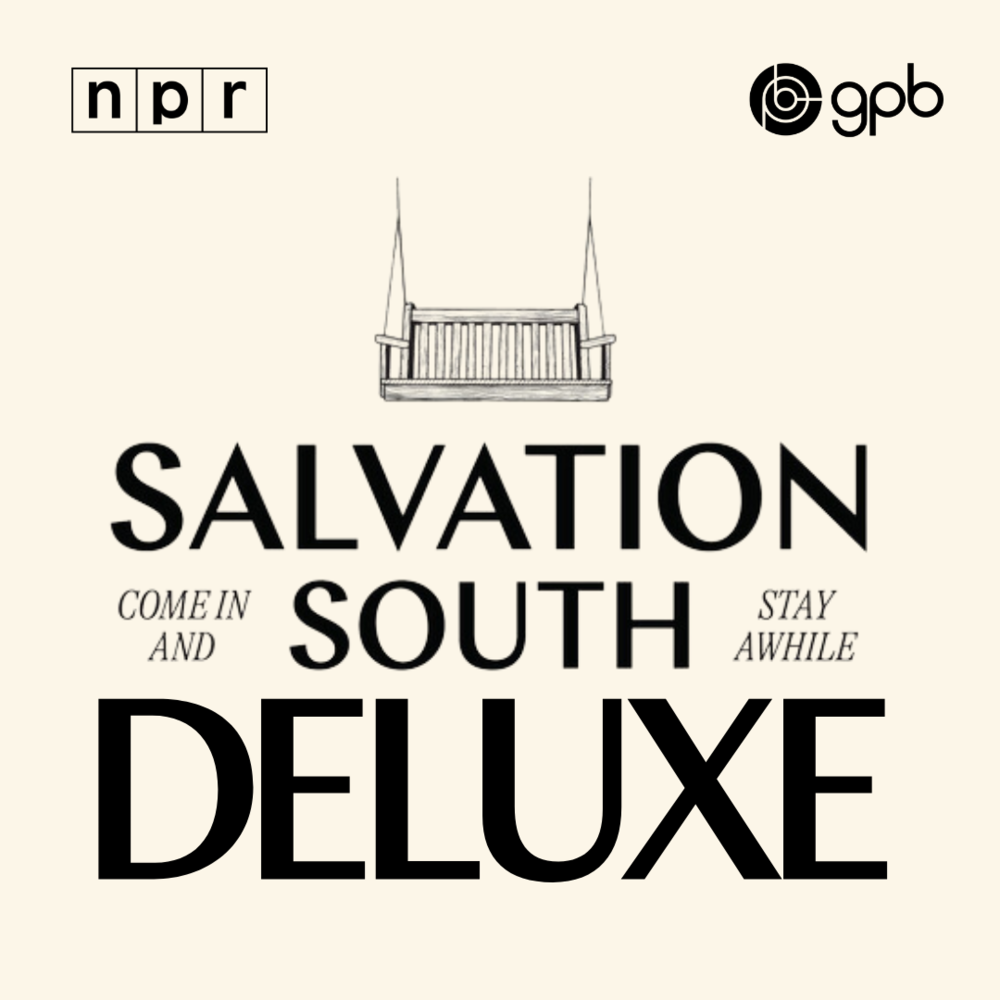
Section Branding
Header Content
Deluxe: No Strangers Here — Clarkston's Half-Century As The Refugee Capital of Georgia
Primary Content
Discover how tiny Clarkston, Ga., became the capital city of Southern hospitality by welcoming refugees from over 150 nations for five decades — and why the tradition endures, even in challenging times.

TRANSCRIPT:
Chuck Reece: When I was a kid, I had 33 first cousins and 14 sets of aunts and uncles. None of them lived farther than about 5 miles from me. The family was in and out of each other’s houses every day.
I remember a sign that hung on the wall in a couple of those houses. It said, “There are no strangers here, just friends we haven’t met yet.”
Southern hospitality.
I grew up in the middle of it, and I expect many of you did, too.
About 10 years ago, I moved to a town east of Atlanta called Clarkston. As I learned about Clarkston’s history and its ways, I came to think to think of this town as the epitome of Southern hospitality. Because for 50 years now, Clarkston has welcomed everybody.
And I do mean everybody.
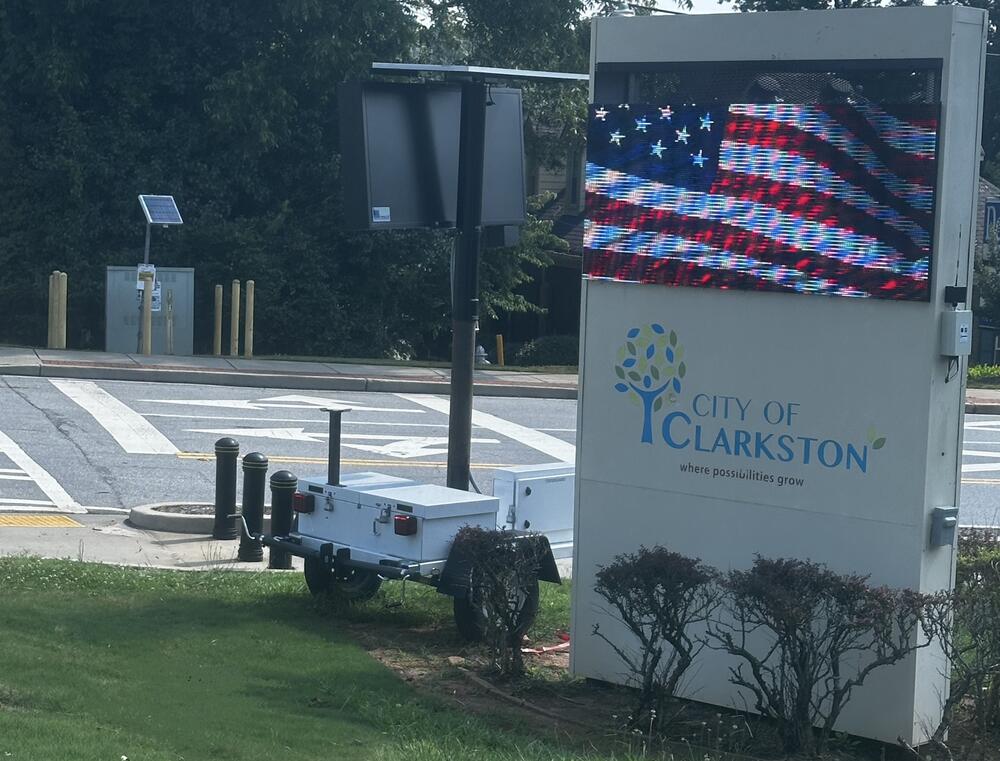
Chuck Reece: Clarkston encompasses 1 square mile and 15,000 people. It’s barely a speck in metro Atlanta’s 8,300 square miles and 6-and-a-half million people. When folks ask me what, quote-unquote, “part of Atlanta” I live in, I say Clarkston. But not everybody knows our little speck. So I always answer with facts and figures.
A square mile, 15,000 people. And what makes Clarkston unique is who those people are. Within our town’s population are people from a 150 different ethnic groups. People from every continent on Earth — except maybe Antarctica. In Clarkston, listen closely and you can hear 60 different languages.
How did this happen? Let’s rewind 50 years, to the end of the Vietnam War.
300,000 people from Southeast Asia were on the side of our American troops in their fight against the communist North Vietnamese, and the U.S. government wanted to keep those people safe. So President Richard Nixon started a massive effort to resettle these people in America.
One place these Asian refugees resettled was here in Clarkston. Remember, this was the mid-'70s, only a few years after the U.S. Supreme Court ordered complete desegregation of the public schools. White flight was in full effect. Clarkston had vacant, affordable apartments by the hundreds. Clarkston had a post office and grocery stories and public transit all within walking distance of those apartments. Sitting as it does right next to Interstate 285, the 65-mile perimeter highway that encircles Atlanta, Clarkston was accessible to the job opportunities of the big city.
The people of Clarkston showed those refugees Southern hospitality. They helped them find places to live. Helped them learn English. Helped them find jobs so they could support their families. Helped refugee women who were pregnant figure out the American medical system so they could give birth safely.
In March of 1980, the U.S. Congress passed the Refugee Act to provide resources to deal with the humanitarian crisis left by the Vietnam War. It passed the House of Representatives with broad bipartisan support. It passed in the U.S. Senate unanimously. And President Jimmy Carter signed it into law on March 17, 1980.
The new law provided funding for state and local agencies, nonprofits, and religious organizations to help welcome refugees. The new law also created the United States Refugee Admissions Program, clearly defining who qualifies for refugee status and establishing a consistent, fair, and efficient vetting and admissions process for those seeking entry into America.
Okay, let’s fast-forward to right now.
On Jan. 27, 2025, Executive Order No. 14163 indefinitely suspended the U.S. Refugee Admissions Program, which had been in place and working for 45 years.
There is a brand of Southern hospitality that is wonderful and not at all complicated. It involves answering a knock at your door in a way that sounds something like this:
"We’re so glad you’re here. C’mon in and sit down where it’s cool. Let me get you a glass of iced tea."

I highly endorse this practice, and I repeat it every time I get the chance. Like the signs I saw growing up said, “There are no strangers here, just friends we haven’t met yet.”
But here in Clarkston, Ga., Southern hospitality runs on steroids. On rocket fuel. Not just "Let me get you some sweet tea," but "Let me help you find a place to live and how to speak the language and how to find a job and let me walk beside you until you feel at home" in this most hospitable of Southern communities.
Did all that stop when Order No. 14163 was signed? No.
Over the last 50 years, Clarkston’s brand of Maximum Southern Hospitality has become the entire community’s way of life.
Stacy Julien: In the neighborhood behind our house I can walk through there and smell dishes from all over the world and everybody's hello or people invite you in for coffee or tea or food. There's this feeling that it's more of a village than like a little city. It's like a village.
We love living in Clarkston. There's really no other place in the world I would want to live. Like, I go for a walk in the morning and I see people from all over the world and people are so kind.
Chuck Reece: Today on Salvation South Deluxe, I’m a-take y’all to my hometown.
Clarkston, Ga.
The capital city of Southern hospitality.
Chuck Reece: I’m Chuck Reece, and welcome to Salvation South Deluxe, a monthly series of in-depth pieces that we add to our regular podcast feed. On Deluxe, we tell you the untold stories of the Southern experience — and let you hear all the authentic voices that make the American South an extraordinary place.
THEME MUSIC OUT
ACT ONE
Chuck Reece: This is Dr. Rusty Pritchard. Rusty is the Senior Director of Program Integration for Friends of Refugees
Rusty Pritchard: There's a kind of, I think of it as a genteel Southern aspect of hospitality, which is to treat your friends well and treat your family well and to always be, have an open door to entertain in a nice way for the people that are like you.
Chuck Reece: Friends of Refugees is a faith-based nonprofit that for 30 years has helped refugees become part of our Clarkston community, our Atlanta community, our Georgia community, and our national community.
Rusty Pritchard: But the Bible that so many of us Southerners depend on has a word, “hospitality,” in there.
Chuck Reece: Rusty is talking about something in the Apostle Paul’s letter to the Romans. Chapter 15, verses 9 through 13.
Here’s what it says, word-for-word: “Let love be genuine; hate what is evil, hold fast to what is good; love one another with mutual affection; outdo one another in showing honor. Do not lag in zeal, be ardent in spirit, serve the Lord. Rejoice in hope, be patient in suffering, persevere in prayer. Contribute to the needs of the saints; extend hospitality to strangers.”
Rusty Pritchard: And if you look it up, as nerdy people like me do, what's the Greek word behind that word hospitality?
It is "philoxenia."
So it's love, "philo." "Oxenia," the stranger, the foreigner, the immigrant, the person at your door that's not part of your family, that's not part your friend group. We open the door to those folks or raise the shades, look outside and see them and invite them in. That's the opposite of xenophobia, which is the fear or the hatred of strangers. So philoxenia is something that we both experience and try to promote at Friends of Refugees, that sense of hospitality, making people feel at home.
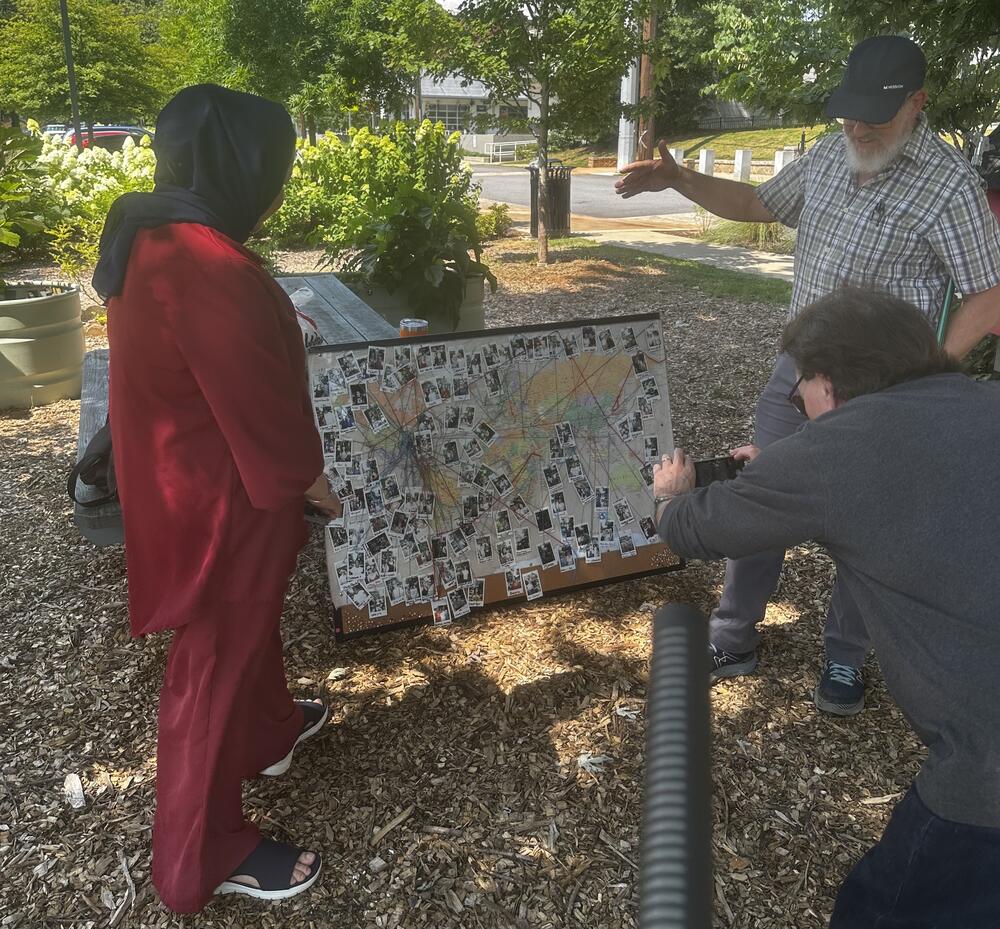
Chuck Reece: In his years of service to Friends of Refugees, first as a volunteer and now as a staff member, Rusty has learned that hospitality is not just a gift that Americans give to refugees. It is also a gift they give back to us.
Rusty Pritchard: I love the notion that this is the place that's the seat of Southern hospitality because I think it's also a place where Southerners learn hospitality from people who are more expert in being hospitable from all over the world.
So, when I think of my experience of hospitality, a lot of it has come from the hands of immigrant and refugee neighbors who welcome me into their life and their story and to share their food and to be in their homes. And as we walk alongside each other, teaches me, who thought I knew something about Southern hospitality, what real hospitality is.
Chuck Reece: We met Rusty on a sunny summer morning in Clarkston in front of Embrace House. The Embrace House the bustling hub of Friends of Refugee’s program that helps pregnant refugees understand the American medical system and get the services they need to have healthy babies.
Rusty Pritchard: We're standing right now in front of the house that we rent from our generous landlords at Clarkston United Methodist Church which we've used for years for different aspects of our ministry of Friends of Refugees. But right now and for the last number of years this has been the Embrace Refugee Birth House.
People show up having been invited to resettle in the U.S. pregnant, and it's a very, very complex situation. It'd be complex enough if you weren't pregnant.
This is a place where folks can come and they can talk to somebody using their own language and get childbirth classes, get a trained doula, who can come with them into the delivery room and help them after the baby's been born. So it's very much like a home inside. It feels very comfortable. People wanna linger there.
All of our programs have different names and this is called Embrace because it really says what we do with the refugee moms who come here — walk with them during that time that is a pretty critical time.
Chuck Reece: That same morning, we met a woman named Muzhda Oriakhil [pronounced MOOZH-duh or-ee-AH-keel]. Muzhda came to the United States 13 years ago, as a refugee from her home country of Afghanistan. She is now the head of Georgia’s Coalition of Refugee Serving Agencies — the CRSA, for short.
Muzhda Oriakhil: It is a collection of refugee service agencies. It's a collection that, based in Georgia, been for 12 years, and mostly it's for advocacy outreach — that work or provide services for refugees and immigrants.
Chuck Reece: CRSA’s members include religious organizations focused on children and families — like Catholic Charities and Jewish Family & Career Services — and other nonprofit service organizations like Easterseals of North Georgia Children’s Services and the International Rescue Committee.
Muzhda Oriakhil: We have different committees and also we are all united to do the advocacy and outreach and stand up all together as one coalition to raise our voice and share the concerns and see — share what we see is not right for our communities.
Chuck Reece: Since January, Muzhda Oriakhil and all the organizations in her coalition have been unusually busy. Executive Order 14163 not only suspended the admission of all refugees to the United States, but also cut off all federal funding to refugee resettlement agencies.
Now Friends of Refugees, in its 30-year history, has never accepted federal funding, instead relies on donations to fund its work. But many groups that are part of the CRSA did depend, at least in part, on federal funding.
Muzhda Oriakhil: Right away, the order was in the ground, and they say that there is no funding anymore. Especially resettlement agencies that used to work and resettle new arrivals here.
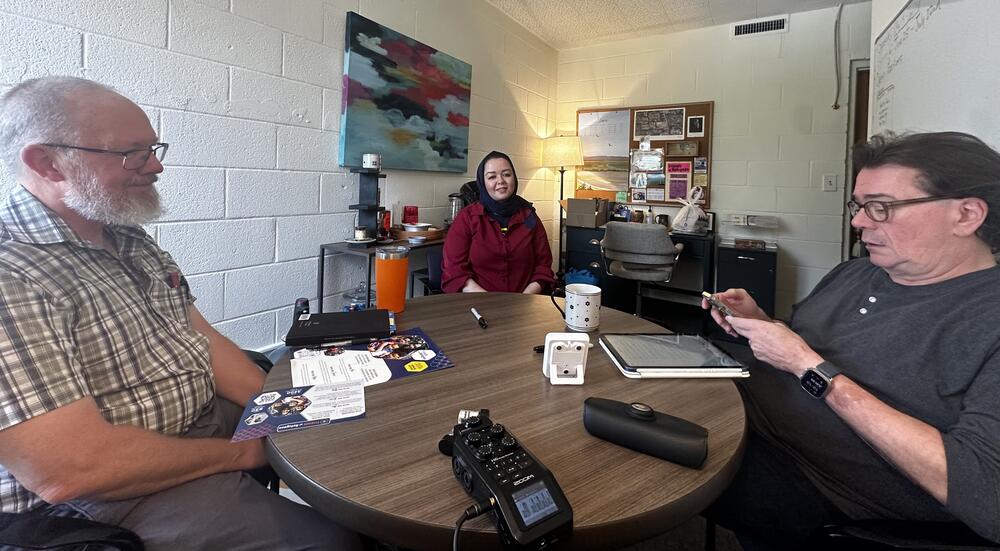
Chuck Reece: I want to take a minute here to make sure, dear listener, that you are not confused about the terminology. The people helped by Friends of Refugees and by the nonprofits that are part of the coalition led by Muzhda are refugees. Refugees who were invited here by the U.S. government, through that strict U.S. Refugee Admissions Process — the USRAP, as it’s called — that has been in place since President Jimmy Carter signed the Refugee Act of 1980.
The recent executive order says the USRAP is suspended indefinitely. Which means our country isn’t admitting any more refugees right now. But the order also stopped funding to programs that helped the refugees who are already here, beginning to build their lives in America and working toward citizenship.
That’s why the religious and nonprofit organizations in the coalition Muzhda leads, the CSRA, are scrambling right now.
Muzhda Oriakhil: They provide many other services for you. Because just imagine being in a new place that you don't know anyone, you don't know anything about the culture, you're not familiar with the environment and the system is not designed with having you in mind as an immigrant or refugee.
The only contact points that you have coming to this country is saying that, "I'm sorry, I don't have funding anymore to help you." So this is a nightmare for those individuals. They lost their resources and they've been so, you know, lost and confused what to do. "OK, if we don't that support, how we can survive? How we can pay our rent? Where we should go, how to find jobs, whom should we speak about those things, you know?" And it's all happened right away, unfortunately.
Many new arrivals, that arrived in January, they lost their support straight away.
Chuck Reece: Another fact is important here. Many refugees who are already here also have family members who had gotten official approval, through the USRAP, to come here. These folks were waiting in line in their home countries so they could join their family members in America.
And now, those people are stuck.
Rusty Pritchard: People especially, I think, feel the trauma of having family members who were in the queue to come here when the programs were suddenly shut down.
You finally saw the light at the end of the tunnel, you had a plane ticket, you'd sold everything that you owned and packed your bags, and you were about to fly to your new home and then your plane ticket's canceled. And then you have to go back and think, "How do I continue to exist here?"
Chuck Reece: Remember, these people were admitted into the U.S. Refugee Admissions Process because they were clearly under threat of persecution or violence in their home country. Now, they're asking themselves new questions.
Rusty Pritchard: "What do I do to protect myself, and how do I deal with this trauma of not being reunited?" And both people who are overseas and families that are here have that kind of relief from anxiety, the thought that they might be reunited, and then they’re plunged back into the depths of that.
Chuck Reece: Let’s look at a specific case here, one from quite a few years ago — Muzhda Oriakhil’s own family.
Chuck Reece (from interview): What was it that prompted your family to want to come here?
Muzhda Oriakhil: Well, my family, which is my parents, they are still there in Afghanistan. But the reason that I came here, I — my husband, he was an interpreter with the military back in 2001 and 2002, right after the first time that the U.S. military took Afghanistan, with the first term of Taliban regime. So he was here when we got married and he sponsored me to come. We came directly to Georgia and start our own family and our life here. And now we have three kids and a big family.
Chuck Reece: Muzhda’s husband was approved to come to America through the U.S. Refugee Admissions Process because he had worked as an interpreter for the U.S. Armed Forces during their fight against the Taliban. The Taliban, of course, is the ultraconservative Islamist movement that seized control of Afghanistan in the 1990s. After the attacks on America in September of 2001, the Taliban provided a safe haven for Osama bin Laden and al-Qaeda.
After 9/11, the United States demanded that the Taliban hand over bin Laden and dismantle al-Qaeda’s operations. The Taliban refused, and that was what led to the U.S.-led invasion of Afghanistan and the removal of the Taliban regime.
When we come back, we’ll talk to a retired U.S. Marine Corps lieutenant colonel who led our troops in Afghanistan. And we'll talk to him about the debt he and his brothers and sisters in arms feel they owe to the Afghan people who helped them.
Salvation South Deluxe will be back after a short break.
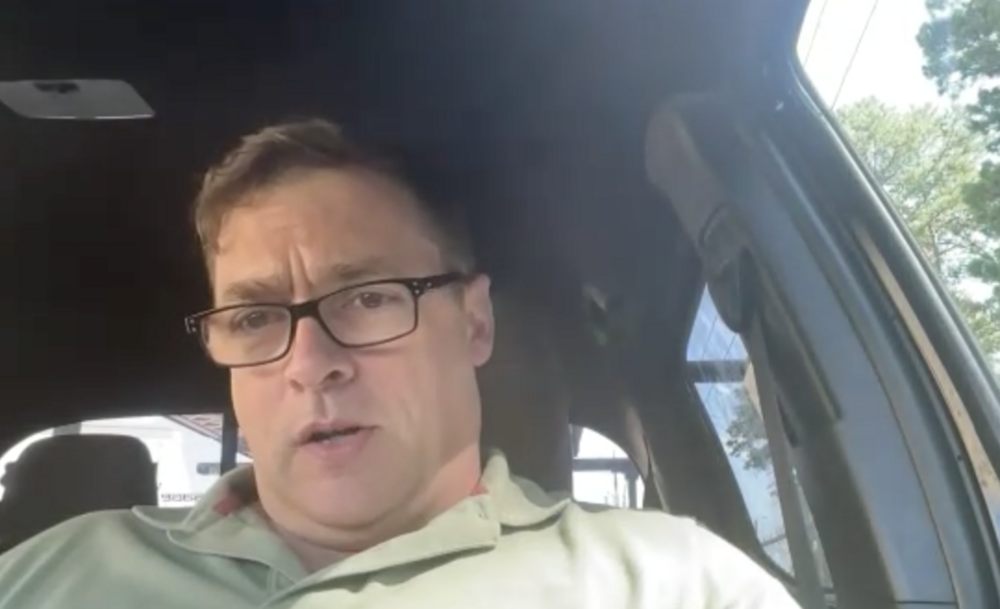
ACT TWO
Worth Parker: If you were a U.S. military member in Afghanistan or Iraq for that matter, you had interpreters.
Chuck Reece: That voice belongs to retired Marine Corps Lt. Col. Russell Worth Parker. He goes by his middle name, Worth.
Worth grew up near Watkinsville, Ga., and now lives in North Carolina. And he spent the better part of 20 years fighting the Taliban in Afghanistan. He depended on interpreters like Muhzda Oriahkil’s husband throughout that fight. In 2020, he co-authored a book with U.S. Marine Maj. Tom Schueman called Always Faithful: A Story of the War in Afghanistan, the Fall of Kabul, and the Unshakable Bond Between a Marine and an Interpreter.
The book details Schueman’s fight on behalf of his longtime Afghan interpreter, Zainullah “Zak” Zaki, to help him get to America with his family.
Worth was also part of a huge effort, after the fall of Kabul, to bring to America all the Afghan people who had supported them. He worked with thousands of other retired and active members of our Armed Forces to save those people from the wrath of the Taliban after American forces pulled out in 2021.
Worth Parker: You take the population that I grew up in within the military, which is the Combat Arms and the Special Operations Forces within Combat Arms — and especially within special ops forces — where a preponderance of that force, whether it be Army, Navy, Air Force, Marine, whatever, has a mission of working by, with, and through local forces. You don't work by, with, and through local forces unless you can talk to those local forces. You certainly don't go into gunfights with people with whom you can't communicate. It's a really bad idea.
We invested a tremendous amount of time into friendships and relationships with interpreters and local force members. Not all of them were interpreters, some of them were combatants. And you form bonds, you form friendships.
You build those kinds of relationships where it's life and death, where you rely on one another, where you become deeply loyal to one another.
These are not just coworkers, you know? These are people you relied on to live.
Chuck Reece: Worth sees the effort to make sure such refugees are welcomed here in the U.S. as something that is absolutely in line with the way he was raised here in the South.
Worth Parker: How do I feel about this? To me, this is a matter of honor. I was raised in a courtly culture.
I still say "Yes ma'am" and "No ma'am" because that's how my mother raised me. I still believe your word is your bond. I still believe that if you say you're going to do something, you do that thing. And I believe that there are unwritten obligations that come just from the way you live and the experiences you have.
Chuck Reece: Clarkston — its people and its government alike — took on the obligation of welcoming refugees 50 years ago. And the executive order from 2025 hasn’t stopped them from doing what they’ve become very good at, which is honoring their obligations.
Through wave after wave of refugees, Clarkston people have helped refugees adapt to life in America. In the '80s and '90s, the refugees came mostly from the Soviet Union and Eastern Europe, from Cuba and Haiti, from the Balkans and Africa. In the '00s and '10s, they came from Latin America and the Caribbean, from the Middle East and South Asia. More recently, it’s been Iraq and Afghanistan, as American troops have left those countries.
Clarkston is still extending hospitality, even after all the upheavals of 2025, because it sees the benefits of doing so.
And some of those benefits are economic.
Rusty Pritchard: They contribute far more in taxes than the limited benefits that they receive for a short period of time. Helping people when they first arrive here is likely to pay off in a big way, rather than not providing help at the beginning and then seeing what problems emerge. So it's — it's been great for the Georgia economy, for Clarkston's economy, for the U.S. economy as a whole, for refugees to be resettled here. They are entrepreneurs at rates that are higher than the background rate among Americans.
Chuck Reece: The Migration Policy Institute, an independent, nonpartisan think tank, has data to back that up. According to the MPI, foreign-born people start new businesses at higher rates than U.S.-born individuals. Today, more than 40% of the companies on the Fortune 500 were founded by immigrants.
So in part, Clarkston feels obligated to keep extending welcome because doing so generates cash.
But for some, welcoming refugees is seen as a deep moral or even religious obligation. Rusty Pritchard is one such person.
Rusty Pritchard: These people are our neighbors. Somebody asked Jesus one time — it’s recorded in the Gospel of Luke — you know, "What do I have to do to inherit eternal life?" And he summed it up in the way that many people sum it up, saying, "Love God and love your neighbor as yourself."
Your neighbor is anyone else who's created in the image of God. You can't just limit it to your family and friends, people in your neighborhood, people in your country. You need to think broadly about that.
Chuck Reece: But maybe the greatest inspiration to keep extending Clarkston’s particular brand of Southern hospitality is what those of us who live here see around us every day: the way the refugees help each other.
Muzhda Oriakhil: When I arrived — so obviously it was hard because the environment was completely different and the people around me was different from many different cultures.
And I find myself among them, because somehow we've been connected with the cultures — you know, like, having the friendship or being open to each other to have — like, communicate.
I had a neighbor from Ethiopia. She and I always go to the park together. She couldn't speak English at all.
I wasn't able to understand what she says and she wasn't able to understand. But we could communicate, you know? Like we shared the meals and sometimes my husband used to work in another state for a contract job and I was alone in my home and she was alone and we came together to eat our meals and most of our communication was with a sign language. Or showing something, like "I want to talk about this," or when she wanted to offer coffee, she even brought the bag for me, like say, "I want you to eat this" and "I want to make this for you, you want to eat it?" Like, yeah.
That was like the highlight when I arrived here, despite the challenges.
Chuck Reece: When I first moved to Clarkston a decade ago, I wasn’t so sure about this place, either. One thing that bugged me was that it didn’t feel like there was a town square, a central place to gather. Where the square should have been, there was only an abandoned gas station.
But one morning, not long after my family unpacked our boxes, I saw a red coffee truck parked outside that station, right up next to the sidewalk alongside Ponce de Leon Avenue. The words “Refuge Coffee” was painted on its side. The truck was only there a couple of mornings a week. A few months later, I noticed that the truck had moved away from the sidewalk and into a different spot, just underneath the big overhang that had covered the gas pumps. A couple of picnic tables had been set up, and people who had bought a latte or just a regular cup of coffee were sitting around them, talking.
Today, we all still order our coffee or tea and pastries from the truck outside, but what used to be the garage bays are filled with tables and chairs and sofas. Outside, there are many more tables with benches and stools around them.
And Refuge Coffee has become Clarkston’s town square, six days a week.
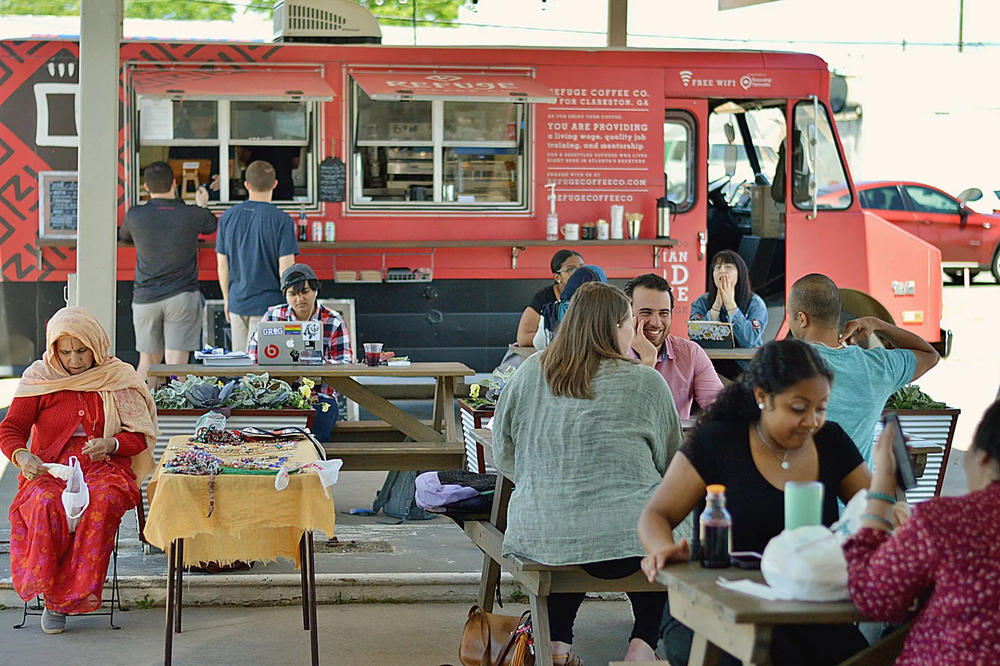
Chuck Reece: That happened because, more than a decade ago, Kitti Murray and her late husband Bill, who was a pastor and a theologian, were pondering the same question Rusty mentioned a little earlier:
Who should we think of as our neighbors?
Kitti Murray: We moved here in 2012. We’d been empty nesters for a while, and one night, my husband, who had a Ph.D. in theology, who had been a pastor, said, “The Bible has been messing with me.” And so I knew it was gonna be important, you know? And he goes, “The Bible talks about widows, aliens, and orphans over a hundred times, you know?”
And he said, “Why don't we have any friends that fit that description?”
And we both agreed that we did life with people who were a lot like us. So we made a decision that night that when we moved out of the apartments — we were in downtown, that was a three-year stint — we would move somewhere that would put us in proximity to widows, aliens and orphans.
We knew about Clarkston, but we weren't thinking about it.
And then literally the next week, I had lunch with a friend, and I hadn't seen him in six months. We were just catching up, and I said "Weren't you talking about buying property … in Clarkston?"
He said they bought it. Seventeen lots in Carroll Park park right over here, and it only had three houses built at the time and they weren't even finished. He says do you want to buy one of our houses?
So six months later we moved in.
Chuck Reece: There is a strong sense of community among the many kinds of people who live in Clarkston. Kitti immediately wanted to start something, anything in this little town. But her husband, the Rev. Bill, encouraged her to take a breath and get to know the place first.
Kitti Murray: My husband's wisdom prevailed because I like to jump into things. I'm like, I'm always revved and ready to go. And he was like, "Let's just get to know our neighbors." So that's all we did for two years. And I would call those two years a romance. Like we just fell in love with everybody we met. I got to know what was happening in the community.
Chuck Reece: If there is a physical anchor that holds down the concept of Southern hospitality, it is the common table — people coming together to share food or a cup of coffee and getting to know each other.
Kitti Murray: Eventually this sort of conversation loop started in my head where I was like, "I love coffee, there's no coffee shop here." And at the time, there wasn't. There was the Ethiopian restaurant down here and they would serve like Turkish coffee, but that was it.
I love coffee, I love meeting people for coffee.
So I kinda wanted to bring my worlds together. I didn't wanna just serve refugees, I wanted to serve all the people in my world.
Chuck Reece: And the idea for a nonprofit coffee business was born.
Kitti Murray: Probably the thing that tipped this over was, as we started to get to know our neighbors, the thing we saw was the need for jobs.
This idea "What if we could start a coffee thing and we could employ neighbors?" I would hear from people, "Oh, well, we hired refugees in our business" but they didn't do this or they did this or whatever, and I remember thinking, "But did you — did you teach them those things? How would you know how to work in another country? You wouldn't."
Chuck Reece: So the vision for Refuge Coffee was to create a place that would teach newly arrived refugees how to work in the United States.
About seven years ago, Kitti and her team filmed a training video for new hires. You can still find it on YouTube. Here’s a clip from that.
Refugee Coffee Training Video:
We're Refuge Coffee, a nonprofit fueled by the mission of welcome. In our community of Clarkston, Ga., we're on a mission to invite our refugee and immigrant neighbors to our table through intentional job training, mentorship, and radical community support. In 2017, almost 86% of refugee families were self-sufficient within 180 days of their arrival in Georgia. That sounds impressive, and it is. But we believe self-sufficiency is only the first step in a thriving new life. At Refuge Coffee, it's our goal to provide a well-rounded and sustainable job experience and a generous community of neighbors consistently advocating for their success. We're aiming to provide a multi-ethnic, agendaless gathering place, both to serve Clarkston and introduce our community to the millions of Atlantans living nearby and countless others throughout the world.
Chuck Reece: That is what Refuge Coffee has become. The nonprofit has three other locations in the Atlanta area, on top of its original spot in Clarkston.
Kitti Murray: We have hired and trained 55 people. What we do is when we hire people, we hire them full-time, we pay them a competitive wage. And then we keep people, you know, as long as we can and then we help them figure out what's next.
Chuck Reece: The first trainee hired by Refuge Coffee was a refugee from the Democratic Republic of the Congo in Africa named Leon Shombana. Leon is now the company’s customer experience manager.
Leon Shombana: The Congo situation is very difficult to describe in short, but you know, we were living in peace — peacefully in Congo. We were living in peaceful situation until 1996 when we got some foreign military from our neighbor, Rwanda. Uganda, they say they come to overthrow Mbutu. Say Mbutu dictator, that's how the situation started. Even today, people are still dying there in Congo.
Chuck Reece: When Leon made it through the Refugee Admissions Process and got to Clarkston 12 years ago, he first found a job about an hour away in Gainesville. That town, which calls itself the Poultry Capital of the World, has more than a dozen chicken-processing plants.
Leon was working in one of those plants when he started attending a Wednesday-night prayer meeting in the home of the late Rev. Bill Murray and his wife, Kitti.
Leon Shombana: I was working at the chicken plant. At that time, Refuge Coffee was not yet started. I was coming in the evening prayer each Wednesday to the house of Kitti Murray. So we always have a Wednesday prayer around 6 p.m. to Kitty's house. When I go to Kitti's house I find the house full of people, so many people. And her mom was there, Kitti Murray was there and Mr. Bill was there.
After that she came to me and said, "Oh, so you were selected to be our first trainee" for Refugee Coffee.
Kitti Murray: And he was very brave to say yes, because none of us knew what we were doing. And we didn't know for sure if we had enough hours for him. We were trying to figure that out, but we did, and we have.
Leon Shombana: And at that time, as she said, "We don't know really how things are going to work. We go just by faith." Just go by faith. We don't know how tomorrow is going to look like. But what was leading us was faith.
Chuck Reece: Leon has found a home and a community in Clarkston, and he is now a U.S. citizen.
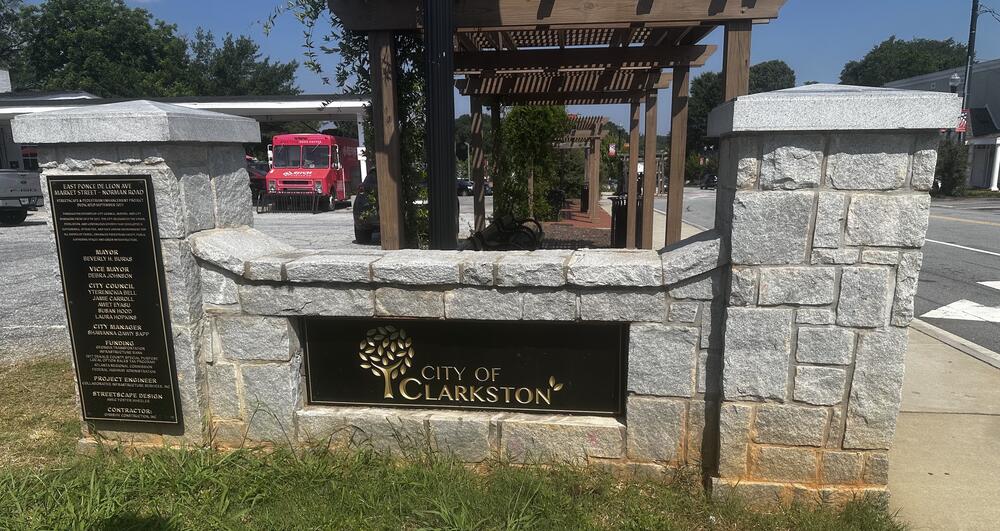
Leon Shombana: Sometimes I feel like I'm in the world apart, because we are living here. People from almost all over, we are here in Clarkston. And that for me to make like it is a unique place. Clarkston is a good place. For me, it's a good place.
Chuck Reece: In the early days of Refuge Coffee, a decade ago, Kitti worried that although she aimed to hire and train refugees, the refugees themselves might not feel included as customers.
Kitti Murray: To me, hospitality is a beautiful thing. But hospitality that is only extended to your own little tribe is — "sweet," you know. But that's it.
We started learning things like it's important to do things with refugees, not for them. Like, that's huge. We used to do a clothing sale, I don't know if you remember that, and everything was $2.
You know this, when you live here and then you just have people you love dearly and they love you, then you just — the right things rise to the surface.
Chuck Reece: I shared with Kitty what I often tell people who are curious about Clarkston.
Chuck Reece (from interview): You can come to Refuge Coffee with your laptop on most afternoons, and if you spend the afternoon working there, you will see what America actually looks like.
Kitti Murray: I'm delighted that that's true. But I also didn't want it to be a place that didn't represent this whole community, which means white and brown and black people and everybody together, right?
We made a decision not to be faith-based. We just wanted to make sure this was not a space that told people we had an agenda for them because the main thing was for everybody to feel welcome.
I think my faith and hope in people — also in God and in potential and in what community and hospitality can really be like — has been expanded. It feels like I've been inflated with it in a really good way.
Obviously there are deflating days. But it's also just so satisfying to be here.
Chuck Reece: Without a doubt, changes in our nation’s policy toward refugees have created real fears and some anger among folks in Clarkston who have extended Southern hospitality to the world for so many years.
Kitti Murray: What I see is a sense of — I see a lot of fear and uncertainty among the people in our community who have been invited here. You know?
Chuck Reece: But Kitti takes comfort and courage from the words of her late husband, Bill, who's gone from this earth for two years now.
Kitti Murray: My husband used to say, “God made the wave, and you just got on the surfboard.” And that's kinda how it has felt.
Chuck Reece: She sees no choice but to keep riding the wave as Clarkston figures out how to steer through this new seascape.
Kitti Murray: When my husband died, not long after he died, I was diagnosed with cancer. And for the first time in my grief, I was just furious because he wasn't here, you know? I wasn't mad at him. I wasn't mad at God or anybody, I was just mad. And a friend had me over to her house. And we threw ceramic mugs and stomped on them and cried and yelled and prayed and all the things.
I feel like our whole community needs a little of that. It makes sense that we're mad, right? Like the rage is there, and it's understandable. So figuring out how to manage that and figuring out how to continue to do what we've always done.
Chuck Reece: And what Clarkston has done, for a half a century now, is to tell the world that there are no strangers here, just friends we haven’t met yet. And it's a place that I'm quite proud to call home.
THEME MUSIC UP AND UNDER
Chuck Reece: We have many folks we should thank for their help and cooperation in producing this episode.
· Rusty Pritchard of Friends of Refugees, which is about to celebrate its 30th anniversary of doing good work.
· Muzhda Oriakhil of the Coalition of Refugee Service Agencies.
· Lt. Col. Russell Worth Parker, United States Marine Corps, retired.
· Kitti Murray and Leon Shomban of Refuge Coffee
· And Stacey Julien, formerly of Refuge Coffee.
You’ve been listening to Salvation South Deluxe, proudly produced in cooperation with Georgia Public Broadcasting and its network of twenty stations around our state. Every Friday, we add a new 3-minute commentary about Southern stuff to our podcast feed, and every month or so, we add longer, dee-luxe stories, such as the one we’ve just told you.
I’m Chuck Reece, your host and the editor-in-chief of Salvation South, which you can find 24/7 at SalvationSouth.com.
Our producer is the Jake Cook, who also composed our theme music. GPB’s director of podcasts is Jeremy Powell, and none of this could have happened without wonderful people like GPB’s Sandy Malcolm, Adam Woodlief, and Bert Wesley Huffman.
We’ll be back next month with another full-length episode of the Salvation South podcast.
Salvation South editor Chuck Reece comments on Southern culture and values in a weekly segment that airs Wednesdays during Morning Edition and All Things Considered on GPB Radio. Salvation South Deluxe is a series of longer Salvation South episodes which tell deeper stories of the Southern experience through the unique voices that live it. You can also find them here at GPB.org/Salvation-South and wherever you get your podcasts.
Discover how Clarkston, Ga., embodies Southern hospitality — welcoming the world’s refugees, even as national policies change.

